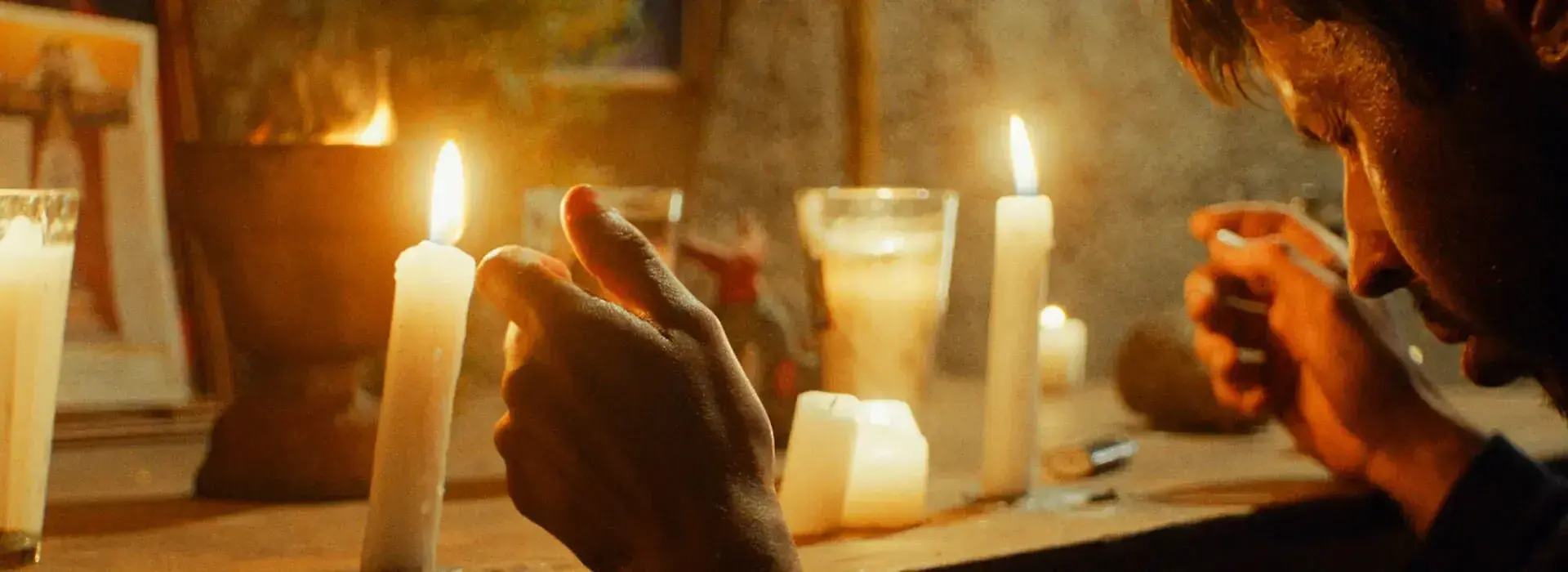


Folk horror is a subgenre that usually calls to mind the moors of the United Kingdom or the rolling green hills of Ireland. Movies like Blood On Satan’s Claw and The Wicker Man and (why not) Rawhead Rex. Mexico, while having a rich history of horror, isn’t often thought of when it comes to folk horror, and when it is the go-to legend is the deeply mined legend of La Llorona. Edgar Nito’s newest offering Un Cuento de Pescadores (A Fisherman’s Tale) plumbs another Mexican folktale as a source of horror, that of La Miringua, an aquatic demon that drags its victims into the depths of a lake.

Rather than telling a straightforward scary story about a spooky lake creature, Nito instead takes a somewhat classically dramatic route by break the plot into four separate subplots that gradually interweave with one another. NIto’s film is more a story about human drama and suffering that doesn’t really need anything supernatural to be interesting or compelling and instead rests upon the simple laurels of everyday human interaction. We have two young women exploring their sexuality and discovering a young man is coming between them, two feuding siblings whose relationship is shattered when one of them is taken by the spirit of the lake, a fisherman whose belief that a curse is behind the recent poor harvest is making him somewhat of a pariah, and a lonely fisherman who believes he’s met the love of his life. As the violence escalates and things spiral out of control, these four stories become more and more entangled through the meddling of La Miringua.

Nito makes excellent use of the film’s lakeside setting, draping the film with layers of moody atmosphere through fog and moonlight and long lonely shots of the lake at twilight. Characters of often shown in silhouette and at a distance, creating a deep sense of isolation and loneliness. La Miringua is sparsely shown, usually only in brief glimpses meant to unnerve rather than reveal. The result is a film in which we are constantly expecting something to happen; not necessarily a jump scare, but more a pulling back of the curtain and something horrifying is shown. It’s ripely tense and excruciatingly nerve wracking.

A standout performance in the film is Jorge Jimenez as Fede. Jimenez imbues Fede with a tremendously relatable feeling of loneliness, someone who wants anyone to connect with. Fede is never pathetic, or mewling, or repulsive in his loneliness. Instead, there’s a deep sadness there, something that makes the audience invested in Fede’s fate and makes us hope that he doesn’t just survive the film but also finds some semblance of happiness at some point. It adds a layer of horror and tragedy to the film that is almost wholly independent of the aquatic demon plaguing the characters in the film.

Un Cuenta de Pescadores is a melancholy look at rural life and the drama that breeds there, injecting a heaping dose of supernatural horror into a dreary small-town setting and then sitting back to watch everything go to hell. Human interactions and the failure that they result in are just as much as source of horror as La MIringua in this film, and Nito does an excellent job of balancing the two to create a tense and terrific folk horror story.




